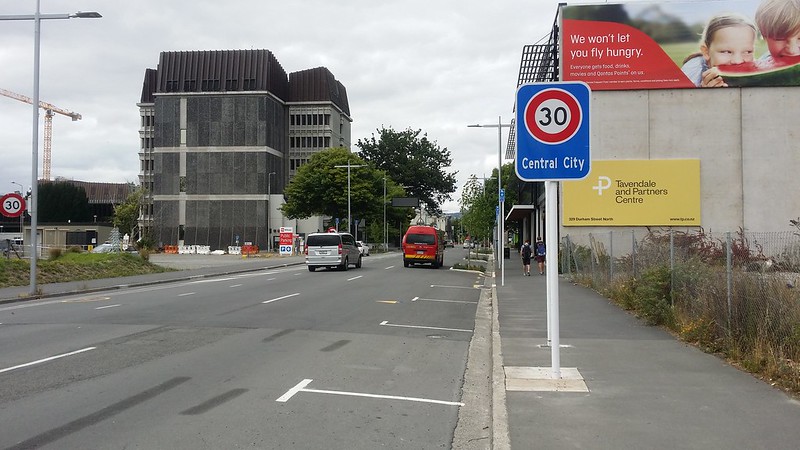Ōtautahi Christchurch central city 30 km/h speed limit safety evaluation
Objective
Client
Location
Deliverable
Timeframe
Project Status
Background
In March 2016, Christchurch City introduced a 30 km/h zone within part of the central city.
In 2019 ViaStrada conducted an analysis of the safety impacts of this lower speed zone, using the surrounding remainder of the CBD as a "control zone" comparison. Changes in traffic volumes were also monitored and factored into the analysis. This first review looked at data before and after the drop in speed limit from 50 to 30 km/h in the years before and after implementation (2014–2018). During this time reported injury crashes fell 22% and injuries by 33%.
In January 2019 the original 30 km/h zone was expanded to include parts of St Asaph Street and Hagley Ave. The original zone and expanded area were analysed separately in an updated crash data review conducted by ViaStrada in 2022. Over the course of eight years (2014–2021) the total number of crashes fell by 20%, injury crashes fell by 35% and injuries by 46% in the original zone area. The “control zone” by comparison experienced a 5% increase in crashes overall, a 27% increase in injury crashes and 3% increase in injuries, showing clearly that the 30 km/h zone had a positive effect on safety.
In the St Asaph Street/ Hagley Ave expanded zone showed similar trends with reductions of 45%, 57% and 64% respectively.
It should be noted that, in the before and after periods of the lower speed limit, the central city streets underwent significant changes due to post-earthquake improvements, which is likely to have also contributed to safety alongside lower speed limits. However, many of these street changes also occurred in the control zone as well.





